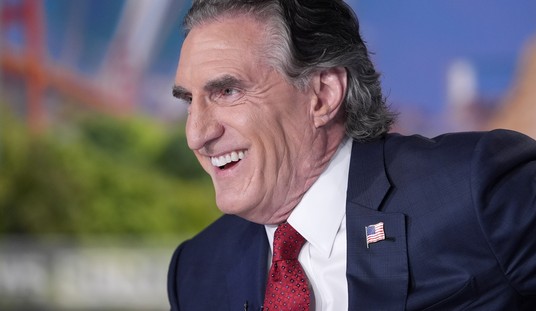The whole thing’s worth watching but especially the bit beginning at 3:30. This is a sequel to Gowdy’s first grilling of Comey before the House Oversight Committee in July, so go watch that clip to prepare yourself for this one. Gowdy’s point then was simple: 18 U.S.C. 793(f), the statute that makes mishandling classified information a felony, applies if the suspect showed “gross negligence” in how they handled the info. You don’t need to show that they intended to mishandle it in order to get a conviction. (Who besides an actual spy would intentionally mishandle state secrets?) All you need to prove is that they were grossly deficient in their duty to handle the information responsibly. Which, very clearly, was true in the case of Hillary “Private Server” Clinton. Comey, however, declined to charge her because, he said, only once in the many decades since that law was passed has someone been charged under it. Supposedly it would be unfair to prosecute Hillary for showing gross negligence when other people hadn’t been prosecuted — never mind that, as a cabinet official, her recklessness involved information at the highest levels of secrecy. Comey all but declared at his press conference in July that he would have prosecuted Clinton only if he had detected an intent to mishandle info. Gross negligence wasn’t enough to charge — even though that’s all the statute requires.
Gowdy’s point is the same now as it was then. Isn’t destroying evidence and then lying about it the best evidence of criminal intent insofar as it reveals a guilty mind? Because that’s what we have here — deleted emails, wiped servers, and then a series of public lies by Hillary about whether she’d ever dealt with classified information on her private system. What more would you need to have seen from her by way of suspicious behavior, he asks Comey, to conclude that she really did know all along that she was mishandling classified information and therefore is guilty even under Comey’s own standard of intent? Comey … has no good answer. Yes, he says, it’s true that concealing evidence is a strong indicator of bad intent, but we need to look at what the suspect has said, too. Which is Gowdy’s point: The false exculpatory statements Clinton has made publicly are further proof that she’s concealing the truth. We also need to look at whether anyone’s been prosecuted for this particular crime before, notes Comey. That’s all that seems left of his decision not to charge her now. He’s not forcefully disputing Gowdy’s claim that Hillary knowingly, not just negligently, mishandled classified information. All he’s saying when you boil it down is that if no one’s gone to prison for this before, it’d be unfair to send Clinton to prison for it now. In July it seemed as though he was writing a new element of the crime into the statute, replacing “gross negligence” with “intent.” Now it seems like he’s writing the statute out of existence entirely because it hasn’t been used in court enough to this point.
Emphasis on “seems”: If you’re a government employee, I advise you not to test the FBI’s willingness to charge you if you’re an average nobody rather than their potential next boss.








Join the conversation as a VIP Member